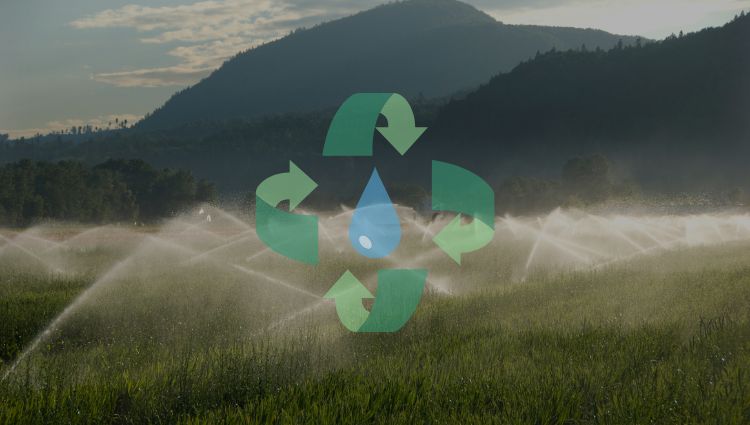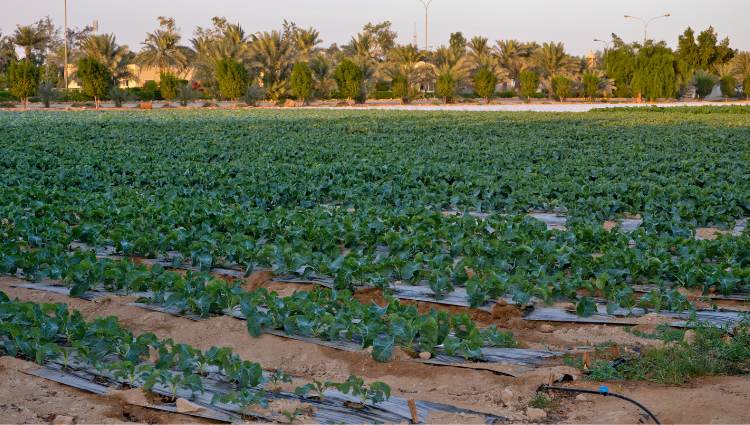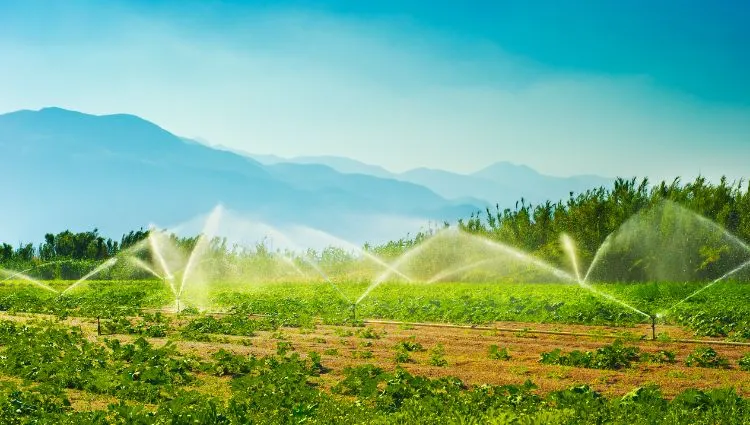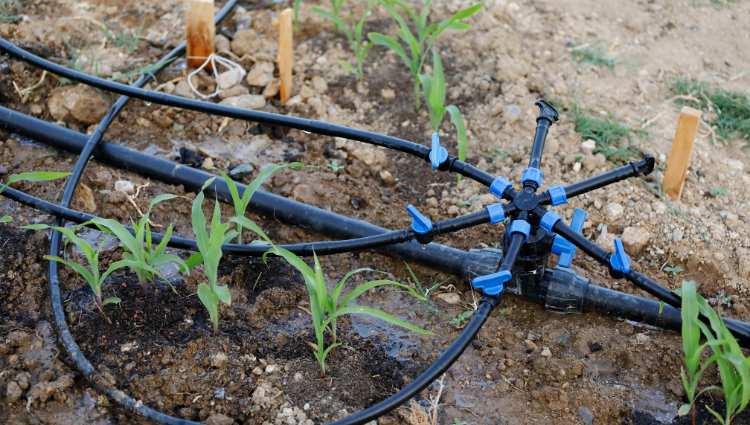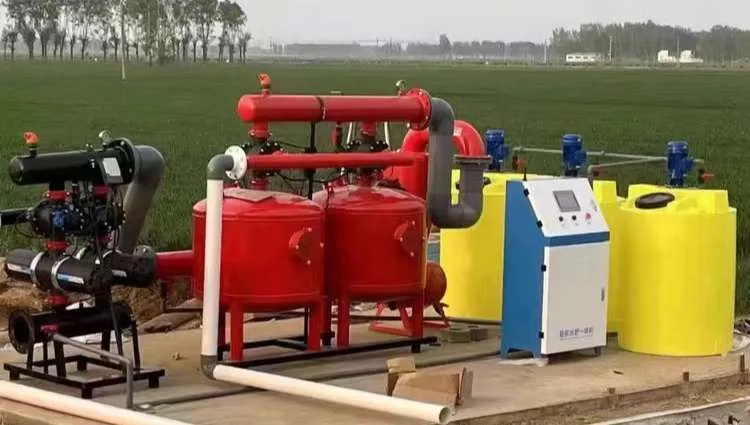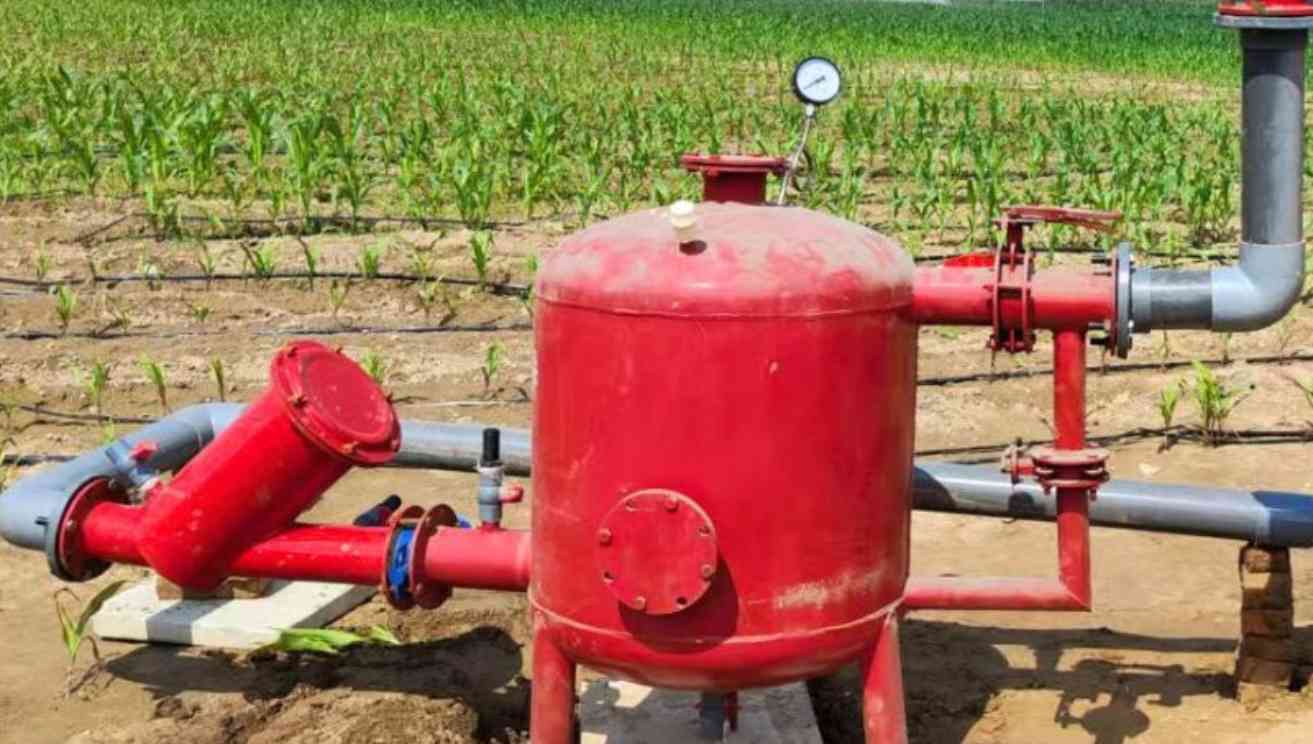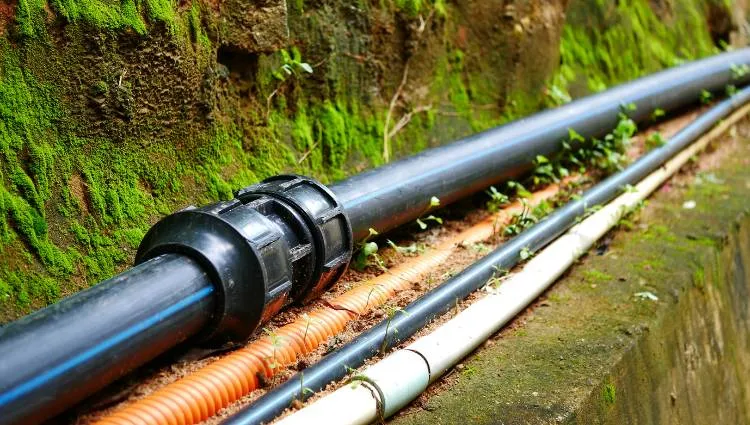የርዕስ ማውጫ
Under the general background of water scarcity, water-saving irrigation has become a deeply rooted concept, and how to use water reasonably for irrigation has become a very important topic.
At present, regarding how to achieve water-saving irrigation, there are mainly two effective mainstream approaches: one focuses on irrigation technology, and the other on water resources.
In terms of irrigation technology, water-saving irrigation can now be realized through methods such as drip irrigation and sprinkler irrigation. As for water resources, the reuse of water and the use of reclaimed water are very good solutions.
ስለዚህ, let’s first answer the question raised in the title of this article: reclaimed water can be used in agricultural irrigation, and it plays a very significant role in this field. Next, this post will share with you some knowledge about reclaimed water and agricultural irrigation.
What Is Reclaimed Water?
Reclaimed water refers to wastewater that has been treated to meet water quality standards and satisfy the usage requirements of certain specific scenarios. It can be reused multiple times. Its use effectively improves the ecological environment and realizes the recycling of water resources.
Applications of Reclaimed Water
The application range of reclaimed water is very broad and can generally be divided into municipal use, industrial use, and agricultural use. ለምሳሌ, in terms of municipal use, reclaimed water can be used for irrigation of parks and green spaces, as well as for road spraying and dust reduction. In the agricultural field, reclaimed water can be used for crop irrigation, though it requires higher water quality standards.
Advantages of Reclaimed Water
Here, we will mainly discuss the advantages of reclaimed water in the field of agricultural irrigation. As we all know, agriculture is one of the major consumers of water resources. Whether it is agricultural planting, crop growth, or the processing and manufacturing of agricultural products, all these stages require a large amount of water. In some countries, agricultural water consumption can even account for 70% or more of the total national water usage.
ሆኖም, in many regions, water scarcity has become an increasingly serious problem. ስለዚህ, solving the issue of water shortage in agriculture has become an urgent task. Among the solutions, the use of reclaimed water in agriculture plays a crucial role.
ለምሳሌ, in Israel—a country where more than half of its land area is covered by desert and annual rainfall is less than 200 mm—although the situation is severe, this pressure has also pushed Israel to take a leading position in water-saving irrigation. By relying on the reuse of wastewater and the development of groundwater and other water resources, Israel has effectively used more than 90% of its reclaimed water in agricultural irrigation, setting a great example for the world.
The advantages of using reclaimed water for agricultural irrigation can be summarized as follows:
1. The implementation cost of reclaimed water technology is relatively low, and in the long run, it is very cost- and energy-efficient.
2. Reclaimed water is rich in essential nutrients required for crop growth, and using it for irrigation can effectively improve soil fertility.
3. The use of reclaimed water reduces sewage discharge, alleviates the risk of environmental pollution, promotes the recycling of water resources, and embodies the concept of sustainable development.
4. Different irrigation environments and crops have different water quality requirements, and reclaimed water can be flexibly adjusted according to specific conditions to meet particular irrigation needs.
Prospects of Reclaimed Water in Agricultural Irrigation
At present, the most common applications of reclaimed water are in agricultural irrigation and landscape water use. Among these, agricultural irrigation has higher requirements for reclaimed water.
Reclaimed water that has been properly treated to meet standards is a very reliable water resource. It not only helps alleviate water shortages in agriculture but also reduces the pressure on natural water resources.
በተጨማሪ, reclaimed water contains moderate concentrations of elements (such as nitrogen and phosphorus) that have a positive effect on crop growth. On the other hand, using reclaimed water for irrigation can lower water treatment costs, reduce wastewater discharge, and lessen environmental pollution.
Currently, the treatment technologies for reclaimed water include physical, chemical, and biological methods. These technologies can effectively remove harmful substances from wastewater and ultimately improve water quality. Although reclaimed water requires a certain amount of investment in the early stages, in the long term, it is a highly worthwhile investment. ስለዚህ, many countries and regions are gradually promoting reclaimed water irrigation technologies.
Overall, reclaimed water has very broad prospects in the field of agricultural irrigation. Most notably, combining reclaimed water with water-saving irrigation technologies—such as drip irrigation and sprinkler irrigation—is the most recommended approach. This combination can maximize the efficiency of water resource utilization and bring the benefits of water-saving irrigation to their fullest potential.
What Are the Impacts of Using Reclaimed Water for Irrigation?
Although reclaimed water has many positive effects on irrigation, if not properly treated, it can also become a source of pollution in irrigated areas. ስለዚህ, when using reclaimed water, it is essential to establish and strictly follow clear standards.
The impact of reclaimed water on irrigation is mainly reflected in four aspects: አፈር, crops, groundwater, and the irrigation system.
Impact of Reclaimed Water on Soil
Reclaimed water can affect the properties and microorganisms of the soil. It may cause issues such as reduced soil porosity, soil compaction, changes in soil pH, and an increase in heavy metal content.
ስለዚህ, when using reclaimed water for irrigation, it is necessary to control its water quality and take soil type into account for proper irrigation management. Special attention should be paid to the changes in heavy metal contents in the soil (such as Pb, Cd, and Cr).
Professional studies have shown that irrigation with reclaimed water does not harm the soil in the short term. ሆኖም, long-term continuous irrigation over several years may lead to heavy metal accumulation that exceeds standard limits. To address this issue, heavy metal removal technologies (such as using heavy metal adsorbents) can be combined with reclaimed water irrigation to eliminate heavy metals from the water. This method can effectively reduce heavy metal pollution in the soil.
Impact of Reclaimed Water on Crops
Practical experience has shown that compared with conventional irrigation water, reclaimed water can, to some extent, increase crop yields. ለምሳሌ, crops such as rice, goji berries, and tomatoes tend to produce higher yields when irrigated with reclaimed water compared to river water.
ሆኖም, it is important to note that while the nutrients in reclaimed water can promote crop growth, excessive irrigation should be avoided. Overuse may lead to nutrient imbalance or soil salinization, which can inhibit crop growth.
በተጨማሪ, reclaimed water may contain heavy metals, pathogens, and other pollutants. Over time, these may accumulate and potentially enter the food chain, posing risks to other organisms. ስለዚህ, it is necessary to strengthen monitoring, treatment, and pollution control to ensure that agricultural products meet safety standards.
Impact of Reclaimed Water on Groundwater
Long-term use of reclaimed water may also affect groundwater. Since reclaimed water contains organic matter, salt ions, and heavy metals, these substances can seep into groundwater systems, particularly affecting the quality of shallow groundwater.
To prevent groundwater contamination, various treatment technologies should be used, and continuous monitoring is required. Currently, since the use of reclaimed water for irrigation is still relatively short-term, no significant effects have been observed. ሆኖም, it cannot be guaranteed that long-term use will remain risk-free. ስለዚህ, continuous observation and research on the impact of reclaimed water on groundwater are necessary.
Impact of Reclaimed Water on Irrigation Systems
The impact of reclaimed water on irrigation systems is mainly reflected in the fact that suspended solids, microorganisms, and particles in the water may clog irrigation pipes, sprinklers, drippers, and other equipment, affecting the normal operation of the system.
ስለዚህ, during the use of reclaimed water, filtration and disinfection measures should be taken to prevent clogging of the irrigation system.
From the above, we can clearly see that the most significant impact of reclaimed water irrigation lies in pollution issues. This is also the biggest challenge currently faced in its practical application.
Although reclaimed water irrigation offers many benefits, the technology is still not yet fully developed, and certain pollution risks remain. ስለዚህ, more in-depth research is needed on this topic.
ሆኖም, the author believes that with technological progress, reclaimed water irrigation certainly has broad prospects and will be able to realize its great potential!
የመጨረሻ ቃላት
This article has shared some knowledge about the use of reclaimed water in agricultural irrigation, and I hope it has been helpful to you!
Finally, እባክዎን ኩባንያችንን በአጭሩ እንድገባ ፍቀድልኝ. Rainfaun is an irrigation product manufacturer headquartered in China. We produce and export various irrigation-related products such as drip irrigation systems, sprinkler systems, ቫል ves ች, and pipe fittings. You can learn more about our company and products on our website.
If you would like to work with us, ትችላለህ እዚህ ጠቅ ያድርጉ ቅጹን ለመሙላት.
ደራሲ ደራሲ: ሚካኤል
አርታኢ: ሚካኤል
የይዘት መገምገም: ሚካኤል
